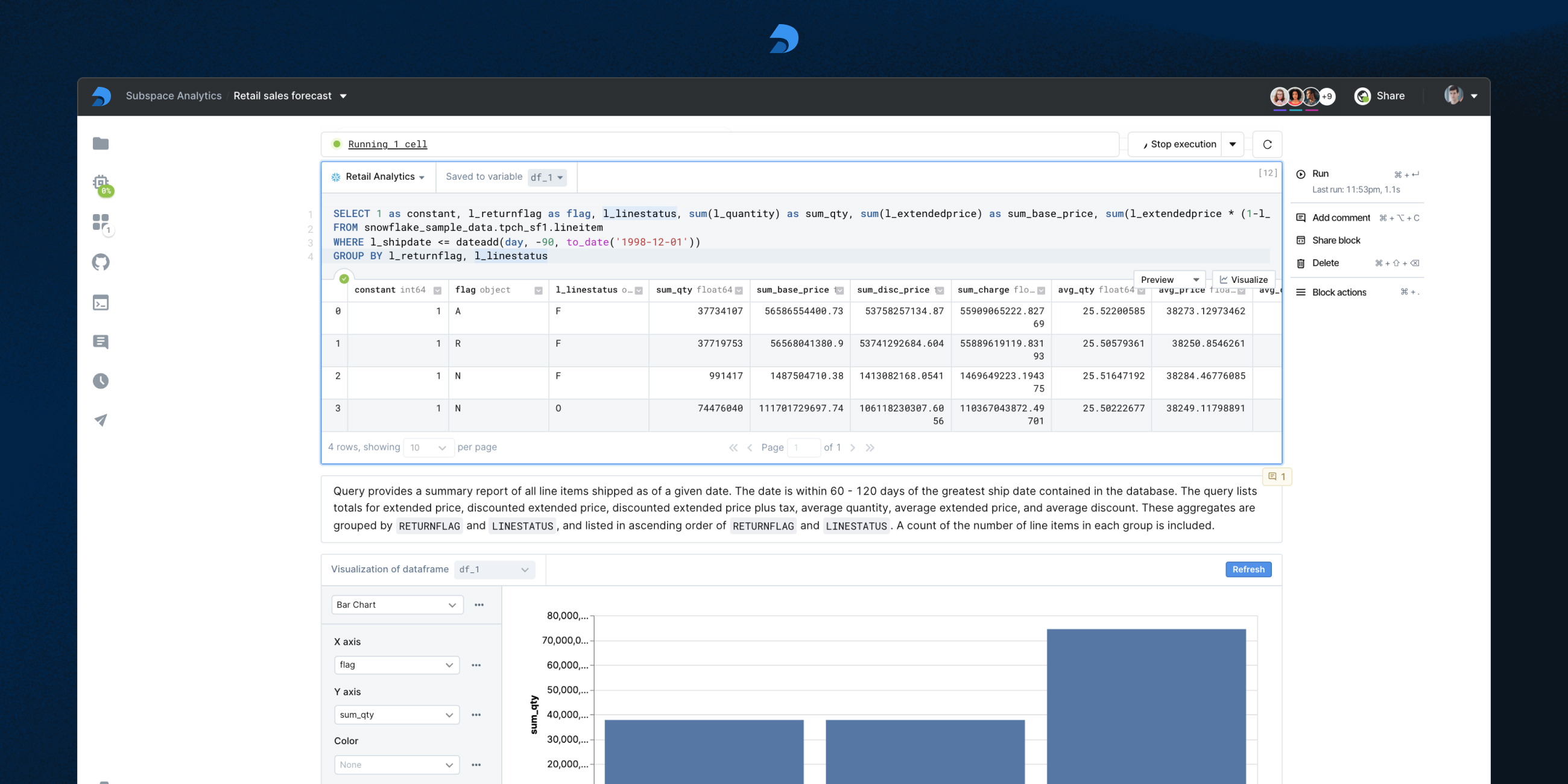Deepnote, a startup that is building a data science platform on top of Jupyter-compatible notebooks, today announced that it has raised a $20 million Series A round co-led by Index Ventures and Accel, both of which participated in its 2020 seed round. Existing investors Y Combinator and Credo Ventures also participated in this round.
As Deepnote co-founder and CEO Jakub Jurovych told me, the company has pretty much stayed true to its original vision since its launch a couple of years ago.
“When we started out, we were coming from this data science and machine learning background,” Jurovych explained. “We were pretty confident that something needed to change in the data science space because we tried everything out there — like all the tools you could possibly imagine — the collaboration was always broken, no matter what we tried.”
The team, which includes co-founder Jan Matas (CTO) and Filip Stollar (head of Design), was already quite familiar with Jupyter notebooks and set to work on bringing easier ways to collaborate to this existing tool.
In many ways, Deepnote has become the de facto standard for shared data science notebooks. Companies like ByteDance, Discord and Gusto now use the company’s platform, and because the data science market is growing quickly, yet talent remains hard to find, the team also made a concerted effort to bring its tools to students. Today, 80 out of the top 100 universities in the world use Deepnote in at least some of their classes.
“The pain that students and teachers our feeling is pretty much the same thing that you see at organizations. “You have the same need to collaborate,” Jurovych said. And just like a professor is able to use the tool to distribute an assignment to hundreds of students, enterprise users can now share their notebooks with anybody else inside the company, including C-level executives. Indeed, Jurovych believes that notebooks — as a format — are able to breach the gap between technical and non-technical audiences. So while Deepnote specifically targets data scientists, one of the team’s goals is to lower the barrier of entry for using notebooks (while staying fully compatible with the Jupyter standard).
“Two years ago, you would have to know how to write Python to get any value out of the notebooks,” Jurovych said. “Today, you just receive a link from someone else who is technical on the team and if you want to tweak the visualization, it’s actually a pretty simple thing to do. If you want to leave a comment, provide some feedback, you don’t have to be the most technical person in the world.”
Deepnote offers a free tier, with a paid Pro plans starting at $12/month/editor that is also available for free for students and teachers.
The remote-first company plans to use the new funding to build out its product and expand its foothold in the data science community. In the process, Jurovych expects to double the teams’ size to about 50 employees in the next 12 months.

















 English (US) ·
English (US) ·